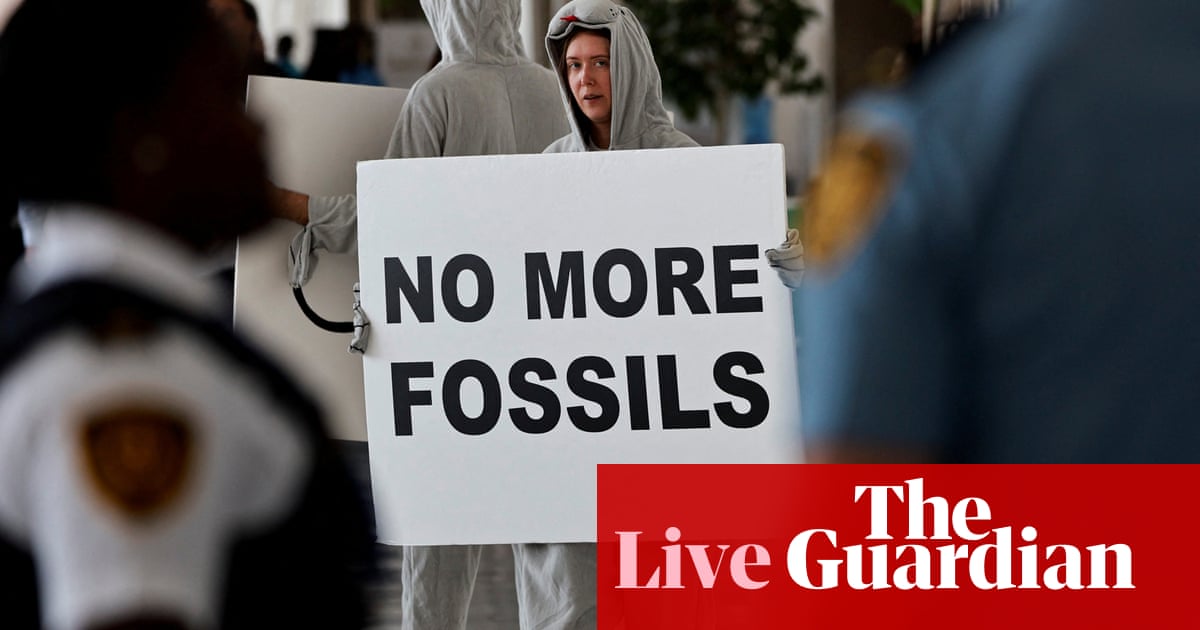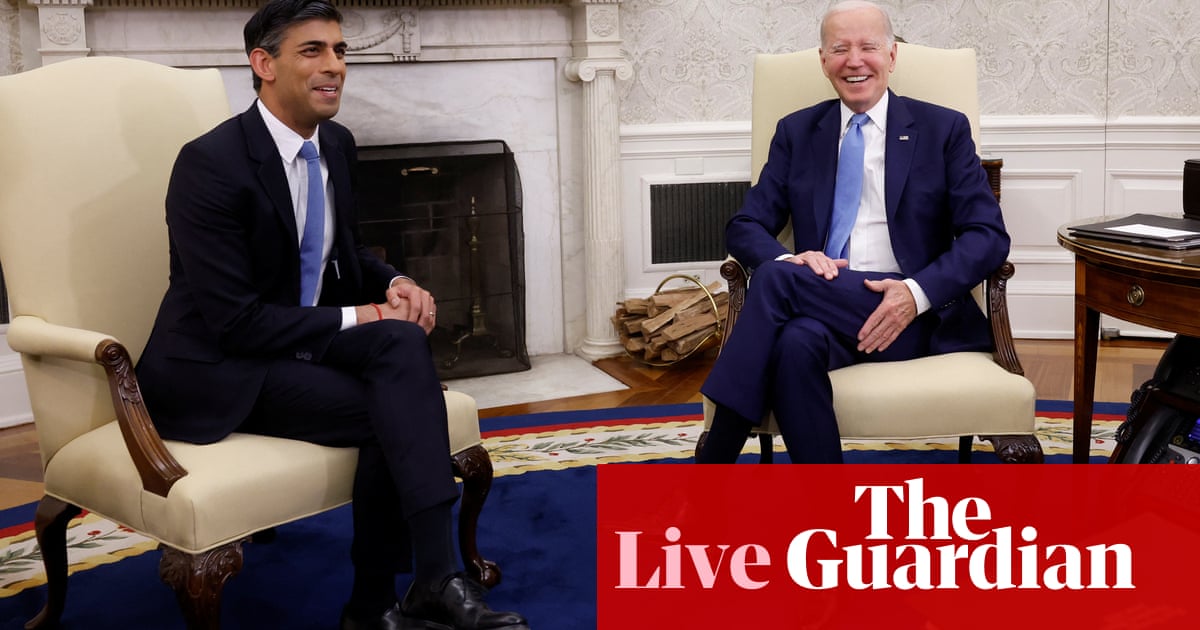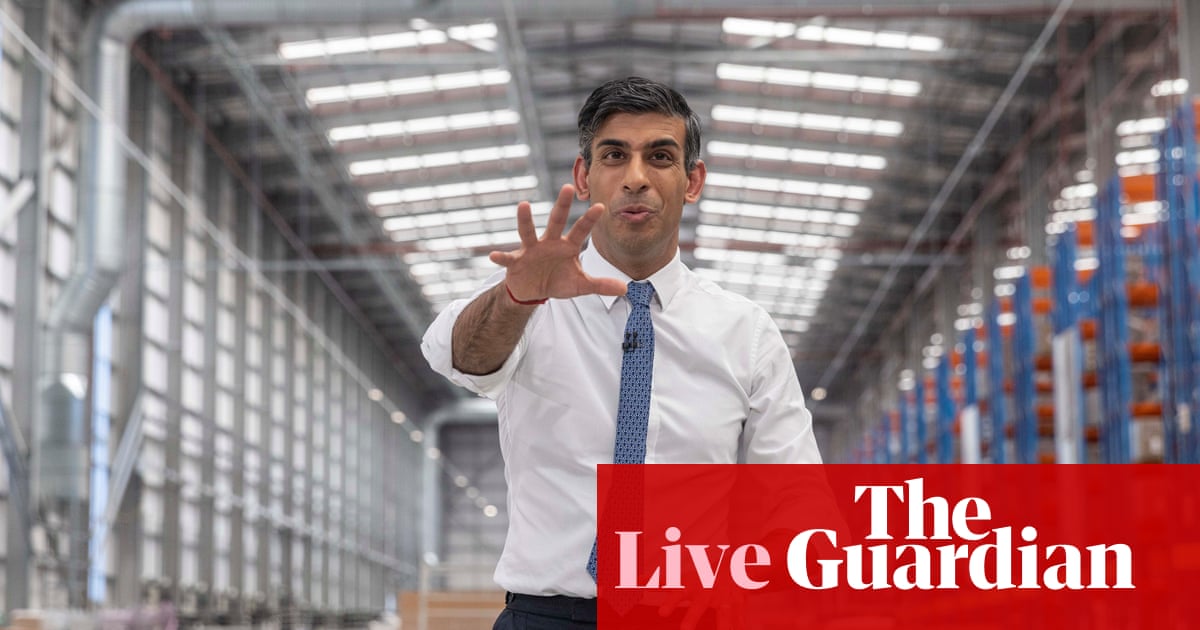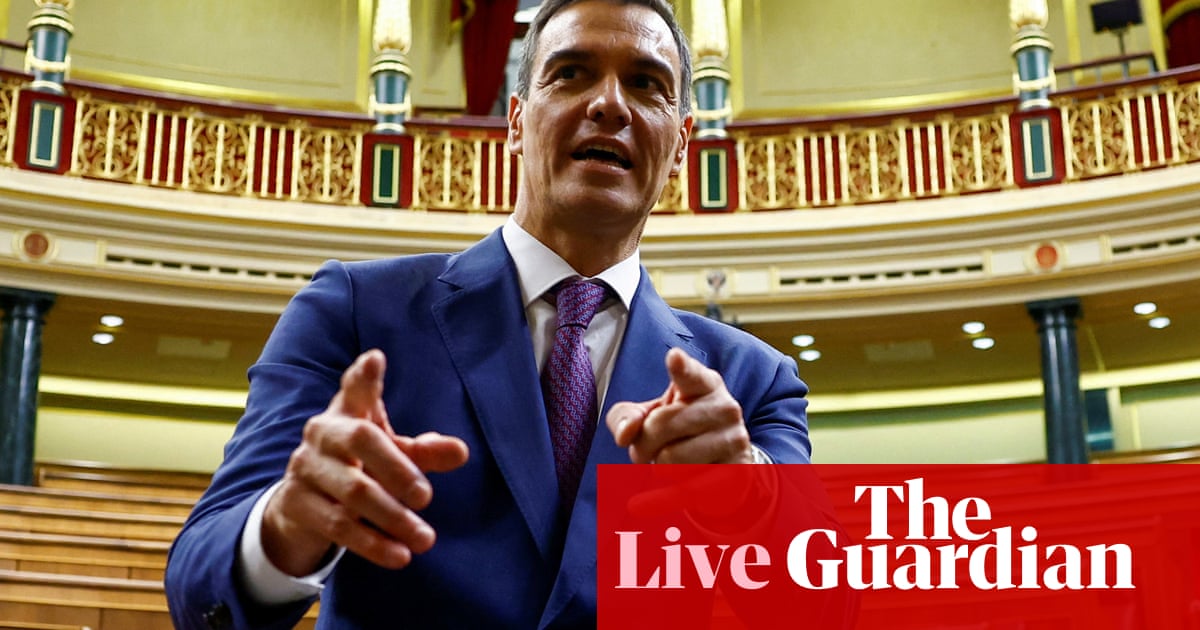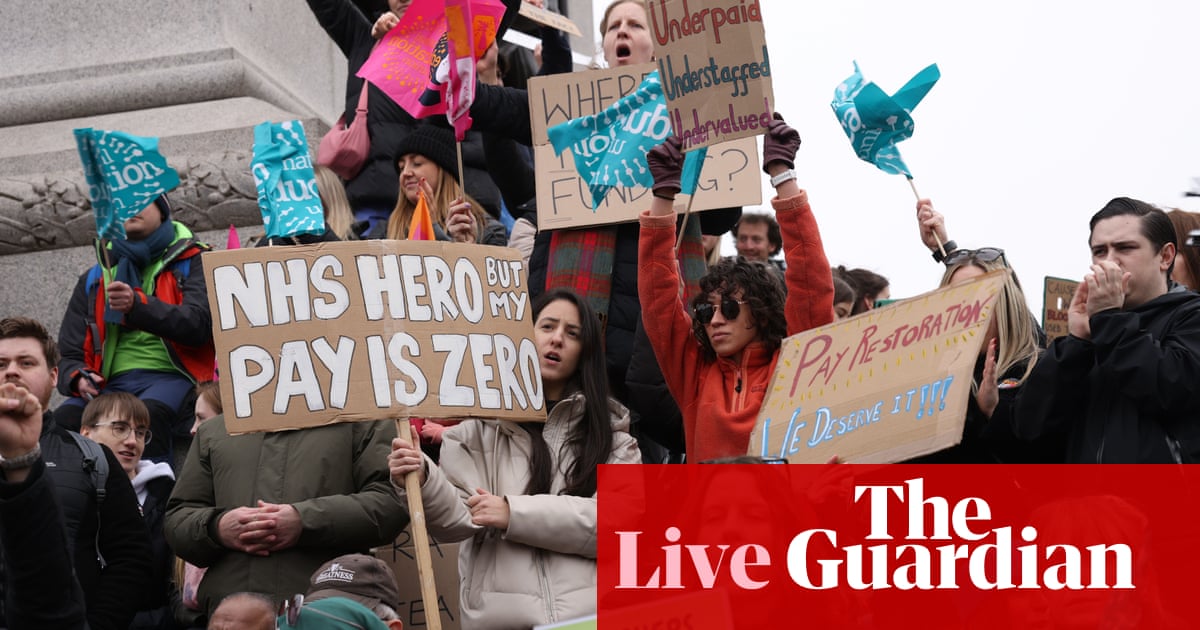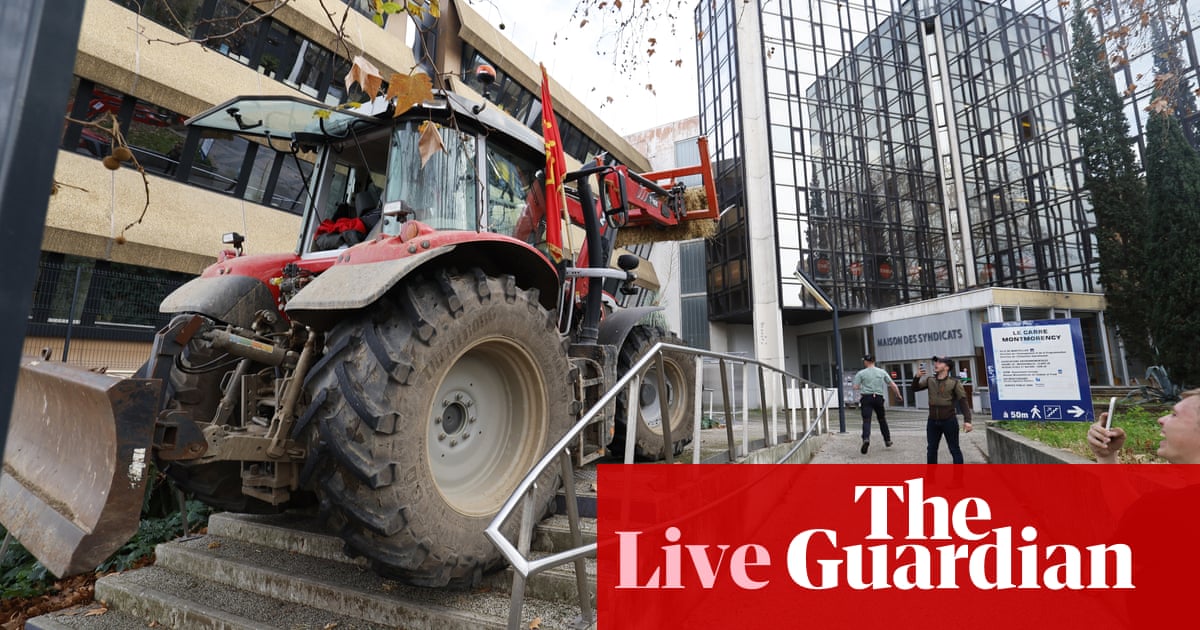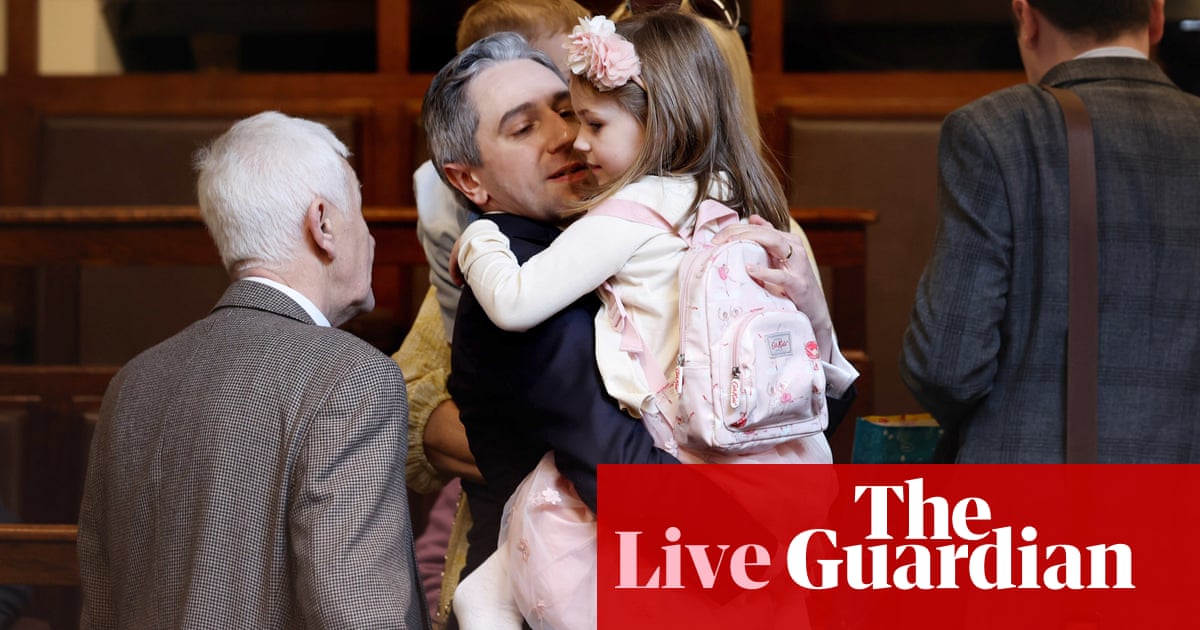
Draft text "unacceptable and inadequate"- African Group of Negotiators
My colleague Dharna Noor has this from Amb Ali Mohamed, Kenya’s Special Envoy for chair of the African Group of Negotiators.
Like many others he is furious about the latest text, describing it as “totally unacceptable and inadequate.”
On the New Collective Quantified Goal text, he says:
“The proposed target to mobilise $250 billion per year by 2035 is totally unacceptable and inadequate to delivering the Paris Agreement. The Adaptation Gap Report alone says the adaptation needs are $400 billion; $250 billion will lead to unacceptable loss of life in Africa and around the world, and imperils the future of our world. Moreover, it is no longer developed countries who are responsible under this formulation. It is rendered as a target for which all countries are responsible and where developed countries are taking the lead. This is unacceptable.”
On the Global Goal on Adaptation text, he says:
“The African Group of Negotiators reiterates the importance of prioritising adaptation and calls for an explicit decision for the technical and expert teams to finalise the work on the indicators six weeks prior to SB62. We believe that the finalisation of indicators is a party- driven process, and as such parties must be given enough time to consider the work and further the development of indicators. Furthermore, we are not happy with the inclusion of transformation adaptation in the text as parties did not have adequate time to engage on the concept. We are also extremely disappointed that the outcome does not provide a clear guidance on the inclusion of the indicators to track the means of implementation for the adaptation. We call for clear guidance for the inclusion of the Means of Implementation in the final text.”
On the Just Transition Work Programme text, he says:
“The Just Transition text is unacceptable and lacks balance between domestic and international dimensions of just transitions. Just transition is about fairness, international cooperation, shared prosperity and access to economic opportunities, as well as addressing challenges for the transitions. The Baku decision should effectively respond to the Dubai mandate and scope of just transitions.”
Summary for the day
We’re winding down the blog now. Negotiations are still taking place over the draft texts, and there has been no announcement of whether we’ll have another set of drafts soon, whether the next text will be the final one, or whether it’s just all on hold till tomorrow. Some are choosing to get a bit of sleep before the potential slog over the weekend.
It felt like a busy day but what actually happened?
Mary Robinson, the former president of Ireland and twice a UN climate envoy, said on Thursday night that rich country budgets were stretched amid inflation, Covid and conflicts including Russia’s war in Ukraine, and warned that poorer countries might have to compromise.
The UK government pledged £239m to tackle deforestation
In an unusual intervention, the UAE stepped in and warned that the world must stand behind a historic resolution made last year to “transition away from fossil fuels” as the Saudis tried to block the language.
The draft text was published, but met a pretty hostile reception. It called for $1.3tn by 2035.
Civil society called it “an absolute embarrassment”
Few countries have spoken up so far, but their reactions have been mixed. The Australian climate change minister, Chris Bowen, has responded to the latest text from the presidency, describing it as a “genuine attempt”. But Amb Ali Mohamed, Kenya’s Special Envoy for chair of the African Group of Negotiators called it as “totally unacceptable and inadequate.”
We’re waiting for the next round of texts to emerge and will pick up the story then.
If you’re just catching up on events, the impact of the draft text is helpfully reported by my brilliant colleague Fiona Harvey here:
It’s worth going back to this piece by my colleague Fiona Harvey for some idea of why this Cop is quite so tricky.
Written as we glided in towards the opening day, she explains:
Money will be the core focus of Cop29. Under the Paris agreement, countries must agree a “new collective quantified goal” (NCQG) for climate finance, to flow from the rich to the poor, to help developing countries cut their greenhouse gas emissions and adapt to the impacts of the climate crisis.
This is something that has never been tried before in three decades of talks. Until now, the only climate finance target has been a promise made in 2009, at Cop15 in Copenhagen, for $100bn a year to flow to the developing world by 2020. That target was only achieved two years late – a delay that damaged the faith of developing countries, according to Alok Sharma, the president of Cop26 in Glasgow and now a member of the UK’s House of Lords. “Not reaching the previous $100bn goal on time sapped the confidence and trust of developing nations, and that’s why any future finance goal has to meet the deliverability test,” he said.
No Cop has ever discussed a finance goal before, let alone any tested of its rationale. The $100bn figure was “plucked out of the air”, said Rachel Kyte, the UK’s new climate envoy, speaking before her appointment to the role. The offer was made – largely at the instigation of the then US secretary of state, Hillary Clinton – based on political calculations of what developed country governments thought their electorates would stand for.
It’s that unprecedented aim which is one of the reasons this Cop is turning out so tricky.
For the Azerbaijan presidency, it was clear from early in the talks that reconciling these two approaches – one based on need, the other on what developed countries are prepared to stump up – means including at least two key numbers in the NCQG. What has emerged from pre-Cop talks in recent months is a “layered approach”. These layers have led some participants to call it an onion, others a camembert (because the sources of cash will be divided up into wedges), while a few prefer comparisons to a pie or a sandwich.
However, we’re a few hours away from the supposed end of these talks, and the camembert, or apple, or pie, or sandwich remains, for now, intact.
Meanwhile the Azerbaijani energy minister, Perviz Shahbazov, has been talking fossil fuel deals at the Istanbul Energy Forum, my colleague Dharna Noor spotted.
Turkey’s energy minister, Alparslan Bayraktar, said on X: “During the meeting, we discussed the possibilities to increase natural gas supply and TPAO’s [Turkish oil company] activities in new fields in the Caspian to further enhance our already intensive natural gas cooperation.”
No new fossil fuel production is compatible with net zero emissions by 2050, the International Energy Agency said in 2021. But Azerbaijan is planning to significantly expand its gas production in the next decade. Do as I say, not as I do?
Azerbaijan wins Fossil of the day
There is some sympathy for the host nation Azerbaijan, as they attempt to usher this increasingly acrimonious conference towards some sort of finishing point.
But no mercy is being shown by Climate Action Network, the gigantic web of climate groups which awards the Fossil of the day award every day at Cop. They’ve chosen … yes, that’s right, Azerbaijan!
Their reasons:
Today’s fossil goes to a country that doesn’t understand the gravity of the Presidency, or for that matter the value of civil society. Azerbaijan has fallen short, way short of the leadership needed here, which shouldn’t be that hard given the previous two COPs were hosted by the fossil fuel industry.
Their take-it-or-leave-it approach is putting at risk not only the climate finance goal, but also other crucial topics failing to advance human rights-based climate action, such as the Just Transition & Gender Work Programmes.
In these decisive hours, the COP29 Presidency must use every chance to bring negotiators back to the table and to secure the transformative outcomes that it had the mandate, and responsibility, to deliver. There is no hope without climate finance, we must move forward here before we reach Belém [where next year’s Cop will be taking place].
Afternoon or evening, depending on where you are. This is Bibi van der Zee, taking over from my colleague Matthew Taylor. Send over your thoughts and suggestions at bibi.vanderzee@theguardian.com.
The Alliance of Small Island Developing States says it is “deeply disappointed” by the texts which “basically asks Parties “how low can you go?” on climate ambition. This is unacceptable.”
This text will not be adequate to fully implement the Paris Agreement, to truly drive action to hold the 1.5C limit.
On the NCQG, the proposed $250 billion a year by 2035 is no floor, but a cap that will severely stagnate climate action efforts.
It is an investment goal that stands at a fraction of the at least $1.3 trillion that is needed to effectively protect our world from the most catastrophic impacts of climate change.
It does not raise the bar from the previous ineffective $100 billion goal.
We cannot be expected to agree to a text which shows such contempt for our vulnerable people.
We appeal to the moral conscience of those who proclaim to be our partners to stand with us, give us a hand, do not leave us further behind.
For 30 years, SIDS have been bearing the costs and the burden of climate impacts.
All we ask is that we are guaranteed and receive the protection that is promised to us under the Paris Agreement. This ask is not a threat. It is just a matter of justice.
Tina Stege, Marshall Islands Climate Envoy, says: “It is shameful to put forward texts like these. This package puts small island developing states and the least developing countries first on the chopping block.
“When the world ignores the science and stands still on fossil fuels, what we hear is that our futures are being tossed away. We cannot accept that.
“On finance, we are offered only a fraction of what the world has spent on war in the past year, and lose everything that we have fought for over the past two years to make that money more accessible to smaller nations. No sub-targets or minimum floors. No definition of climate finance. No clarity or accountability for where the money will come from or go to.
She finishes by saying: “It is incomprehensible that year after year we bring our stories of climate impacts to these meetings and receive only sympathy and no real action from wealthy nations. We are not here to tell stories. We are here to save our communities.”
Trade unions representatives at Cop29 have weighed in, describing the climate finance goal “as nothing more than a bluff” and “an outcome so inadequate it can be dismissed out of hand”.
The Trade Union Non-Government Organisations, known as Tungo, are one of nine UN-recognised NGO constituencies at the summit.
In a statement, it said:
“At a time when the world needs to be massively expanding climate finance this deal could well scale it back. It sets a goal of $250bn by 2035. Given inflation, this barely even budges the status quo, in real terms.
“It leaves the global south with a fraction of the financing the text itself recognises as essential. There are no commitments to public or concessional financing and only a token reference to loss and damage. Crucially, human rights have been stripped out, and workers deliberately omitted.”
Following a flurry of [overwhelmingly negative] reaction to the new texts released a few hours ago, we are now waiting for the plenary – where countries set out their formal reaction – to start.
My colleagues on the ground in Baku have asked Cop29 officials what the timings might be as this stretches into the evening local time. but are getting nothing back yet.The scientist and chief executive of Climate Analytics, Bill Hare, who has been attending Cops since the 1990s, says there are “massive issues” with the text . He describes the proposed climate finance goal as “incredibly weak”.
“I think the presidency will have to iterate more than once now to try and find something workable,” he said.
On climate finance, he said the $250bn goal was weak as “any kind of finance can count towards it, and it only needs to be achieved by 2035, which means it’s essentially a ceiling, not a floor”.
“It also expands the contributor base to include anything that multilateral development banks fund. It means developed countries are not accepting the responsibility they have.
“Small islands and the least developed countries have been sidelined by the Azeri Presidency text. There is no mention of minimum allocations from them - a key ask - no explicit acknowledgement even of their special circumstances, which is already in the Paris agreement and the convention, so a step back to not include here. And perhaps most cruelly is the exclusion of any mention of loss and damage.
“The ‘call’ for a broader mobilisation of climate finance from public and private sources including investment is quite weak, being just a call when there needs to be strong direction.
“The $1.3tn per year put forward to go to developing countries by 2035 needs to be now and not 10 years time - and would need to be much higher by 2035.”
My colleague Dharna Noor has this from Jennifer Morgan, Germany’s climate envoy, on the new texts:
”This is not at a landing ground yet, but at least we’re not up in the air without a map.
Lots of work still needs to be done. We‘re working with allies from all around the world, especially the most vulnerable, to ensure an ambitious and fair outcome.”
Draft text "unacceptable and inadequate"- African Group of Negotiators
My colleague Dharna Noor has this from Amb Ali Mohamed, Kenya’s Special Envoy for chair of the African Group of Negotiators.
Like many others he is furious about the latest text, describing it as “totally unacceptable and inadequate.”
On the New Collective Quantified Goal text, he says:
“The proposed target to mobilise $250 billion per year by 2035 is totally unacceptable and inadequate to delivering the Paris Agreement. The Adaptation Gap Report alone says the adaptation needs are $400 billion; $250 billion will lead to unacceptable loss of life in Africa and around the world, and imperils the future of our world. Moreover, it is no longer developed countries who are responsible under this formulation. It is rendered as a target for which all countries are responsible and where developed countries are taking the lead. This is unacceptable.”
On the Global Goal on Adaptation text, he says:
“The African Group of Negotiators reiterates the importance of prioritising adaptation and calls for an explicit decision for the technical and expert teams to finalise the work on the indicators six weeks prior to SB62. We believe that the finalisation of indicators is a party- driven process, and as such parties must be given enough time to consider the work and further the development of indicators. Furthermore, we are not happy with the inclusion of transformation adaptation in the text as parties did not have adequate time to engage on the concept. We are also extremely disappointed that the outcome does not provide a clear guidance on the inclusion of the indicators to track the means of implementation for the adaptation. We call for clear guidance for the inclusion of the Means of Implementation in the final text.”
On the Just Transition Work Programme text, he says:
“The Just Transition text is unacceptable and lacks balance between domestic and international dimensions of just transitions. Just transition is about fairness, international cooperation, shared prosperity and access to economic opportunities, as well as addressing challenges for the transitions. The Baku decision should effectively respond to the Dubai mandate and scope of just transitions.”




